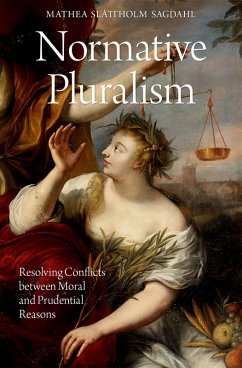The potential conflicts between morality and self-interest lie at the heart of ethics. These conflicts arise because both moral and prudential considerations apply to our choices. A widespread assumption in philosophical ethics is that by weighing moral and prudential reasons against each other, we can compare their relative weights and determine what we ought to do in the face of such conflicts. While this assumption might seem innocuous and fruitful, a closer examination suggests that it lacks both justification and the necessary content that would allow it to do the normative work it promises. In this book, Mathea Sl?ttholm Sagdahl grapples with these cases of conflict, but argues that there may be no simple answer to the question of what we ought to do all things considered. Sagdahl argues against the assumption of comparability and defends an alternative pluralist theory of normativity where morality and prudence form two separate and incommensurable normative standpoints, much like in Henry Sidgwick's "Dualism of Practical Reason." This type of view has tended to be quickly dismissed by its opponents, but Sagdahl argues that the theory is in fact a well-motivated theory of normativity and that the typical objections that tend to target it are much weaker than they are usually thought to be.
Dieser Download kann aus rechtlichen Gründen nur mit Rechnungsadresse in A, B, BG, CY, CZ, D, DK, EW, E, FIN, F, GR, HR, H, IRL, I, LT, L, LR, M, NL, PL, P, R, S, SLO, SK ausgeliefert werden.









